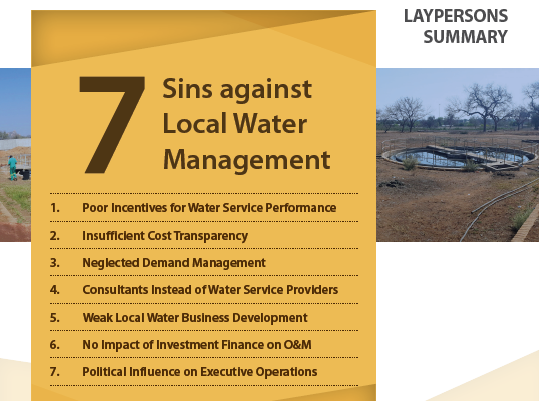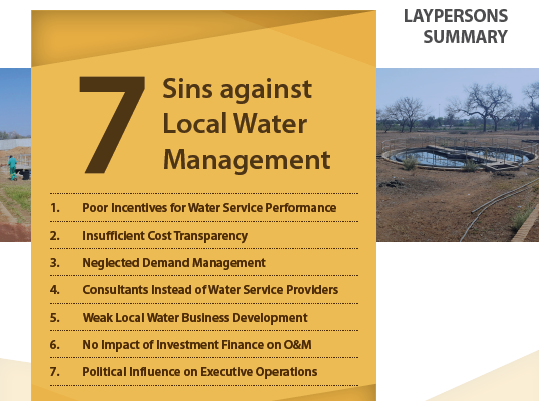The list of “seven sins” offers a clear set of criteria for investors, regulatory authorities, water utilities and water service providers. It formulates recommendations for improved local water management practice that has added social, environmental and economic value.
In view of the slow progress towards Sustainable Development Goal 6 (clean water and sanitation), in-depth research on the functional deficits of local water management took place. It included an analysis of case studies and publications, interviews with water supply practitioners, as well as a complimentary consultation of a wide range of experts from academia, practice and donor institutions. As a result, seven core topics were found to be particularly relevant for successful local water management.
These criteria are listed with brief comments on WHY each topic needs to be addressed and recommendations on HOW this can be done in practical terms. If not addressed (too common worldwide, unfortunately), the seven topics must be named as what they are: seven serious, typically fatal sins against local water management. However, if properly managed and mitigated, they can be considered as seven success factors; they can serve as starting points to strengthen the performance of local water and wastewater management and prevent sunk investments that would otherwise be a burden on local, national and multinational taxpayers, or water consumers and their environment.



